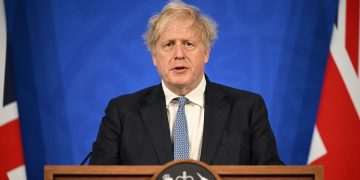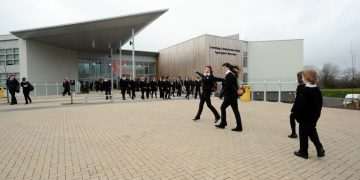London, UK – 18.05.2025 – As globalization accelerates and businesses expand across borders, there’s a growing emphasis on language education at every level of the academic spectrum. From primary schools introducing bilingual curricula to universities offering advanced degrees in linguistics, the global boom in language learning is not just an academic trend—it’s a strategic response to the demands of the international economy.
In recent years, institutions across Africa, Europe, Asia, and the Americas have reported a significant increase in enrolment for language and linguistics courses. The surge reflects a broader realization: proficiency in multiple languages is an economic asset in an interconnected world.
“Language is the infrastructure of globalization,” says Ms. Toni Amukunzire, co-founder of Applied Lingo, a translation services agency. “It’s not just about grammar and vocabulary—it’s about cultural access, negotiation, and building trust across borders.”
A Shift in Educational Priorities
Traditionally, language studies were seen as a soft skill or academic niche. Today, they’re increasingly integrated into STEM programs, business schools, international relations degrees, and vocational training. Many education systems are now emphasizing multilingual proficiency as a core competency, essential for careers in diplomacy, international trade, healthcare, and technology.
According to data from UNESCO and the British Council, foreign language learning in developing countries has grown by over 40% in the past decade. Schools are teaching not just global languages like English, Mandarin, Spanish, and Arabic, but also regionally strategic ones such as Swahili, French, and Portuguese.
“We’re witnessing the rise of the economically motivated linguist,” says Amukunzire. “Students and professionals are learning languages not for leisure, but for access—to jobs, markets, and international collaboration.”
Language Skills as Economic Tools
In the age of globalization, language is currency. Companies are hiring multilingual employees to manage international operations, communicate with diverse customer bases, and localize products for new markets. Governments are investing in language education to attract foreign investment and facilitate diplomacy. Even startups are seeing the value of linguistic agility as they build remote, multicultural teams.
The ability to speak multiple languages can increase a worker’s earning potential by 10–15%, according to World Bank research. It also reduces communication errors in high-stakes industries like law, medicine, and aviation.
Technology and the Language Economy
While AI-driven translation tools continue to improve, human language expertise remains critical. Educational institutions are adapting by offering hybrid programs that teach both traditional linguistics and language technology—including machine translation, speech recognition, and localization engineering.
At the same time, companies like Applied Lingo are working closely with universities to provide internships and real-world training opportunities. By bridging the gap between academia and industry, they ensure that students graduate with practical, employable skills.
“We’ve seen firsthand how students with strong language backgrounds transition easily into careers in diplomacy, international aid, or global marketing,” Amukunzire says. “That’s why we advocate for language education not just as an academic pursuit, but as a pipeline to professional success.”
Looking Ahead: Language as a Global Bridge
As the world becomes more interconnected—and interdependent—the need for clear, culturally competent communication will only grow. Linguistic education, once underestimated, is now being embraced as a cornerstone of economic integration and cooperation.
From high school classrooms in Nairobi to language labs in New York, learners are gaining the tools they need to thrive in the global marketplace.
“Language connects people, and connection drives commerce,” concludes Amukunzire. “As we invest in language education, we’re investing in the future of global collaboration and economic opportunity.”
About Applied Lingo
Applied Lingo is a multilingual translation and interpretation agency founded by Ms. Toni Amukunzire. Serving clients worldwide, the agency specializes in over 300 languages and offers certified translations, real-time interpreting, and localization services across education, legal, healthcare, and tech sectors. Applied Lingo is committed to advancing linguistic equity and promoting language access as a tool for global development.
Visit www.applied-lingo.com for more information.

















































